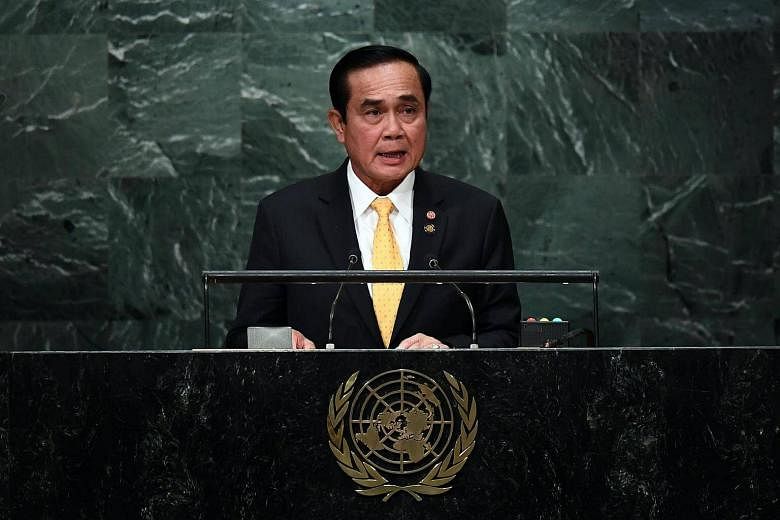BANGKOK (Reuters) - International human rights group Amnesty International on Wednesday (Sept 28) accused Thailand's military government of allowing a "culture of torture" to flourish since the army seized power in a 2014 coup.
The military took power in South-east Asia's second-biggest economy after months of street protests against a populist government, saying it had to step in to prevent violence and restore order.
It rejects accusations of rights violations and a government spokesman said on Wednesday investigations into allegations of torture had found no evidence of any such abuse.
Since the coup, dozens of government critics have been held in military detention, although the exact number has not been released.
Amnesty International said in a report it had documented 74 cases of alleged torture at the hands of soldiers and police, and post-coup decrees had allowed authorities to detain people incommunicado.
The group cited allegations of beatings, smothering with plastic bags, waterboarding and electric shocks on detainees by authorities. "Empowered by laws of their own making, Thailand's military rulers have allowed a culture of torture to flourish, where there is no accountability for the perpetrators and no justice for the victims," said Rafendi Djamin, Amnesty International's director for Southeast Asia and the Pacific.
The government denied accusations of torture, said General Sansern Kaewkamnerd, spokesman in the Prime Minister's Office. "Our investigations into such allegations have shown no indication of torture, I have seen no indication of torture and the Thai people have seen no indication of torture," Sansern told Reuters.
LAUNCH CALLED OFF
Amnesty International was due to hold a news conference at a Bangkok hotel to release the report.
But minutes before the event, men wearing jackets with tags identifying them as Ministry of Labour officials, accompanied by police, said the speakers could face arrest under labour laws.
In response, organisers cancelled the launch, Omar Waraich, media manager for Amnesty International in Asia, told Reuters.
"We are here on business visas, we have an office in Thailand, we are not singling out the Thai government," Waraich, said, adding that Amnesty had received no communication from the government on the report or the launch.
In March, the government gave soldiers powers of arrest and detention saying there were not enough police to tackle crime. Rights groups said the powers would only help strengthen a crackdown on critics.
Thailand came under fire in May at a U.N. review of its rights record with some member states expressing concern over the rights situation.
Amnesty said torture tactics were encouraged by "legal incentives", including martial law, which the military ditched in 2015 and replaced with Article 44 of an interim constitution which gives the military similar powers to those it had during martial law, and which critics have dubbed a "dictator law".
A junta order issued in April 2015 allows the military to detain people for up to seven days without charge.
Junta chief Prayut Chan-o-cha, who is also prime minister, has frequently defended the 2014 coup saying it was necessary to bring order back after years of on-off political unrest.
He has promised an election will be held next year.

